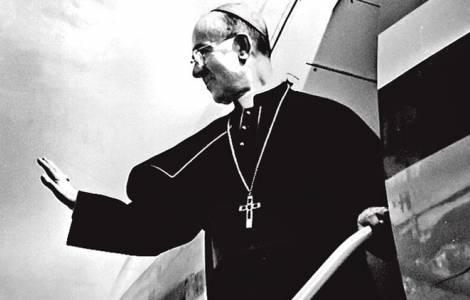
Vatican City (Agenzia Fides) – The confrontation seemed inevitable. Chile and Argentina were on the brink of war over sovereignty of the Beagle Channel, a strategic passage between the Atlantic and Pacific oceans. At a critical moment, the intervention of the Holy See, under the leadership of the newly elected Pope John Paul II, prevented what could have been one of the bloodiest conflicts in Latin America.
The crisis between Buenos Aires and Santiago de Chile reached its peak in the year of the three Popes. The fight for possession of the Picton, Lennox and Nueva islands, located in the channel, dates back to 1888, but was revived in 1978. Twelve months earlier, Argentina, led by the military regime, rejected the arbitration award issued by the United Kingdom, declaring it “irremediably null”.
In a focused intervention, the diplomacy of the Holy See came into play. It initially acted through the Apostolic Nuncio Pio Laghi. In 1979, the winds of war continued to blow and, to avoid an escalation, Pope John Paul II appointed Cardinal Antonio Samorè as his personal representative to resolve the dispute between the two nations. For four years, the cardinal strove to reach an agreement that would put an end to the dispute. The agreement was reached, but Samorè was never able to see it signed, as he died in Rome in February 1983. The treaty, now forty years old, arrived almost two years after the death of the papal envoy, on November 29, 1984. It was signed in the Vatican under the title of “Treaty of Peace and Friendship.”
Four decades after that historic signing, the Churches of Argentina and Chile, which are celebrating the anniversary these days with solemn masses and intense moments of prayer, "give thanks to God that in those difficult years dialogue and peace prevailed and a war between brother peoples was avoided," reads a joint statement released in recent hours by the respective Episcopal Conferences. The Bishops of Argentina and Chile "are grateful for the peace and integration between both nations and we trust that this path can continue to deepen, for the good of our peoples. We hope that from the spirit of encounter and understanding between the nations, especially in our Latin America, initiatives and policies can emerge to resolve the multiple deficiencies and social crises that we experience in our continent and that especially affect the lives of the poorest."
At the Vatican, as on previous occasions, the anniversary of the peace treaty was celebrated with a commemorative event in the Sala Regia of the Apostolic Palace, in the presence of Pope Francis, the Argentine ambassador to the Holy See, Luis Pablo María Beltramino, and the Minister of Foreign Affairs of Chile, Alberto van Klaveren. In addition to several cardinals and members of the Diplomatic Corps accredited to the Holy See, Argentine and Chilean authorities participated in the ceremony.
In his extensive speech, the Argentine Pontiff repeatedly stressed how the diplomatic work of the Holy See and the efforts deployed by the Church at that time are a model for today's diplomacy in which, he said, there is "the hypocrisy of talking about peace and playing at war." The reference is to arms factories, as he has repeated on several occasions: "In some countries where there is a lot of talk about peace, the investments that give the most returns are arms factories. This hypocrisy always leads us to failure." And, distancing himself from the written text, he added: “I simply mention two failures of humanity today: Ukraine and Palestine, where there is suffering, where the arrogance of the invader prevails over dialogue.” “God willing, the international community can make the force of law prevail through dialogue, because dialogue must be the soul of the international community,” added the Pontiff, who reiterated how the 40th anniversary of the signing of the treaty represents an occasion for the entire planet, as well as “a renewed call for peace and dialogue. The commitment that involved these two countries during the long negotiations, which were difficult, as well as the fruit of peace and friendship, constitute in fact a model to be imitated.” (F.B.) (Agenzia Fides, 25/11/2024)